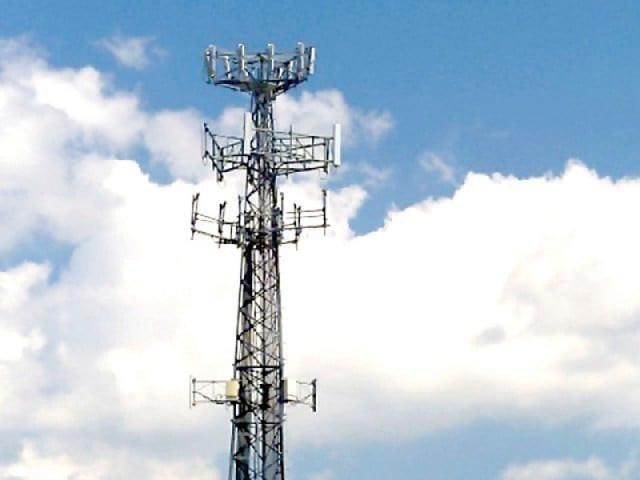Telecom appellate tribunal set up
Govt aims to swiftly address legal disputes in telecommunication sector

In a groundbreaking move, the government of Pakistan has taken a decisive step by instituting the Telecommunication Appellate Tribunal, aimed at swiftly addressing and settling disputes within the telecom sector. Responding to the persistent calls from IT, telecom, and internet service providers, the government strategically enacted the Telecommunication Appellate Tribunal Ordinance of 2023 demonstrates to enhance the efficiency and responsiveness of the industry.
This newly established Tribunal joins the ranks of specialised entities, mirroring its counterpart handling disputes in the power distribution sector. The caretaker government, recognising the urgent need for a dedicated institution, has formally enacted the Telecommunication Appellate Tribunal Ordinance of 2023, marking a milestone in the evolution of the country's telecommunications landscape. The official gazette notification outlines key details of the Tribunal, which will be composed of three members, including the chairperson. The chairperson's qualifications are outlined precisely – they must either be a Judge of a High Court or an advocate with a substantial 15 years of experience in the field. Notably, all ongoing appeals and cases related to the IT and telecom sector within the purview of High Courts will be swiftly transferred to the Telecommunication Appellate Tribunal within a month, as articulated in the gazette.

design: mohsin alam
Appeals against the decisions made by the Tribunal can be filed at the Supreme Court within a sixty-day timeframe. While the appointment of the chairperson and members awaits the formalities of the incoming government, expected to be elected on February 8, the legal framework has set a clear path. The law mandates a four-year term for the chairperson and members, with provisions for reappointment. Their service concludes either at the age of sixty-eight or upon the expiry of the term, unless renewed.
The intricacies of remuneration are carefully defined in the ordinance. If the chairperson is a retired Judge of a High Court, their entitlements will reflect the last salary, perks, and privileges drawn in that role. Conversely, if an advocate assumes the role of chairperson, their entitlements align with the salary, perks, and privileges of MP-I scale within the federal government structure.
The composition of the Tribunal emphasises the importance of expertise. One of the members must possess a master's level professional degree in fields such as electrical engineering, electronics, telecommunications, information and communication technology, or information security. The other member should have a similar level of professional qualification in finance, commerce, economics, chartered accountancy, or a related subject. Both members are entitled to the salary, perks, and privileges of the MP-I scale, underscoring the significance of their role in ensuring fair and informed decisions within the telecom sector.
Read Telecom industry for promoting digitalisation
Caretaker IT Minister Dr Umar Saif, a key figure in driving this initiative, highlighted that the Telecom Tribunal will operate under the Presidential Ordinance in the absence of Parliament. Saif acknowledged that the establishment of the Tribunal fulfills a longstanding demand of the Telecom sector, providing a dedicated platform for the expeditious resolution of cases.
Saif further explained that the Ministry of Law will play a pivotal role in nominating the chairperson and members of the tribunal, ensuring a transparent and accountable selection process. Moreover, the Tribunal will include two-member technocrats, their numbers subject to adjustment based on evolving needs and circumstances.
One of the most noteworthy features of the Telecom Tribunal is its commitment to deciding on approved appeals from telecom operators against the decisions of the Pakistan Telecommunication Authority (PTA) within a stringent 90-day timeframe, said the minister. This represents a paradigm shift from the historical practice of approaching the High Court for operational or service disputes between PTAs and telecom operators, a process known for unnecessary delays.
This newly established tribunal addresses historical inefficiencies and sets a precedent for efficient conflict resolution. By providing a dedicated and expert forum for dispute resolution, the Telecom Tribunal is poised to play a crucial role in ensuring the continued growth and stability of the telecom industry, fostering an environment conducive to innovation and investment. As the sector continues to evolve, the significance of such dedicated institutions becomes increasingly evident, positioning Pakistan as a forward-thinking player in the global telecommunications landscape.
Published in The Express Tribune, January 5th, 2024.
Like Business on Facebook, follow @TribuneBiz on Twitter to stay informed and join in the conversation.



















COMMENTS
Comments are moderated and generally will be posted if they are on-topic and not abusive.
For more information, please see our Comments FAQ